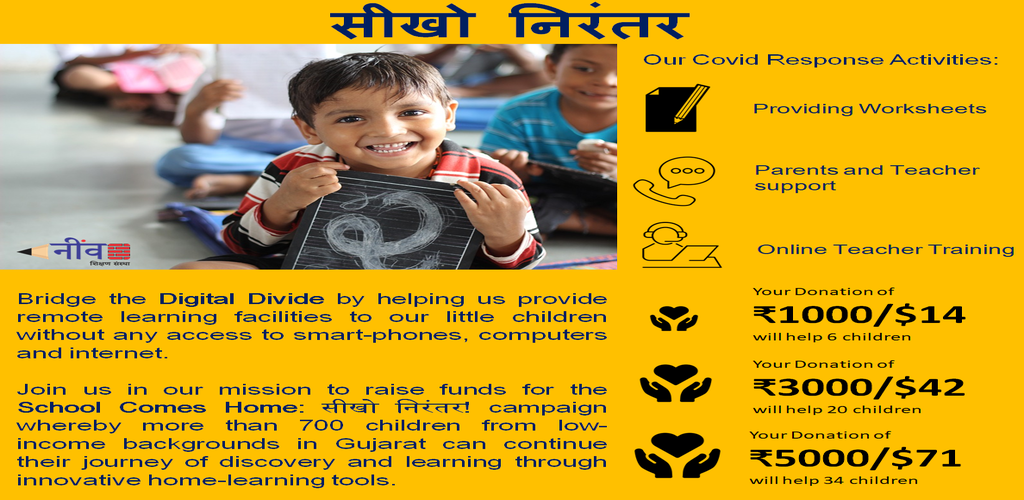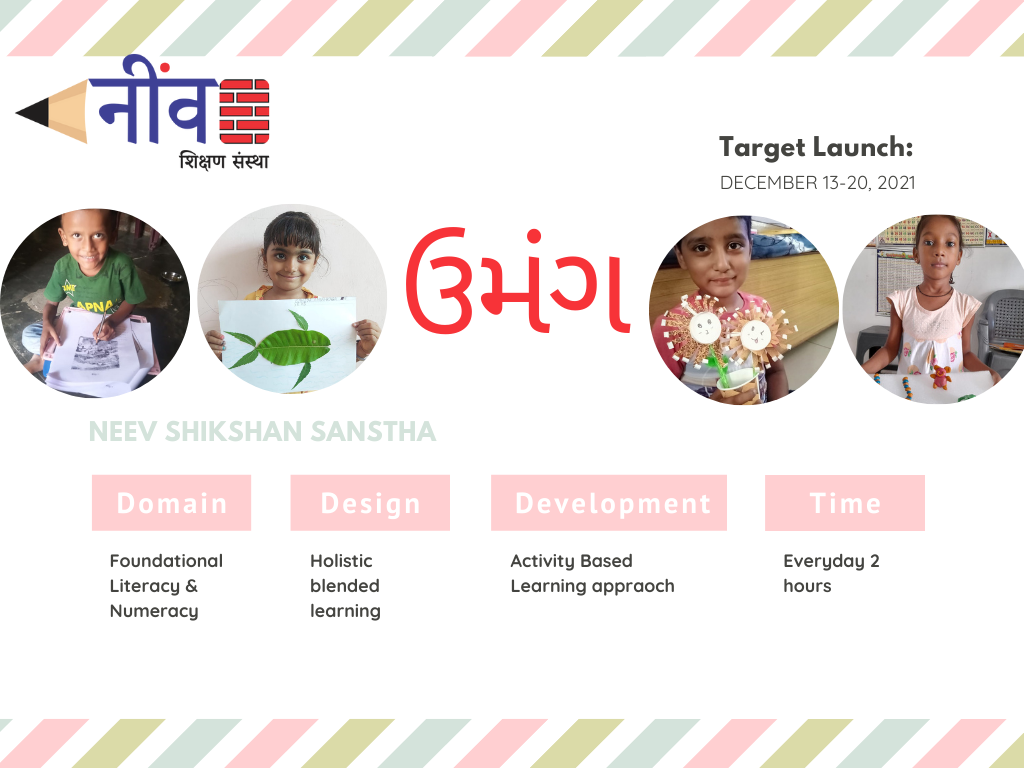सीखो निरंतर - Our Covid Response strategy
Digital Divide

Without access to smart-phones, computers and the internet, children in rural parts of Gujarat are unable to participate in remote learning. Help us bridge the digital divide so that our little children can continue to learn while schools remain closed.
The major challenge of remote learning lies in the disparity in access – from electricity and internet connections to devices like computers or smart phones. This divide notwithstanding, we are working on setting up effective channels of learning for the children by innovating with and leveraging the limited means at hand.
Introducing "Umang"...
An initiative for students of 1 and 2 standard to revise the core concepts from past two years over a 30-90 day period. The revision plan has age appropriate activities comprised of objectives, assessments and support to teachers with structured plan, identifying material with in-class support.
In contrast, Mayank will struggle to read single words, let alone sentences. His 1st grade teacher is not fluent in English, which is used as language of instruction, he cannot get extra help because there are more than 60 pupils in his class and there are no story books at school. Further, Mayank gets home from school tired because he walks two hours and fails to review his book and do homework properly. He lives with his old grandmother who can’t read and write, and they use a different language (colloquial Gujarati) at home. Little Mayank finds it hard to learn and lessons are sometimes confusing and not making sense. While his teachers will be doing their best to help him, soon enough, Mayank will start to lose motivation and dislike going to school. By the end of primary school, Maya will devour teenage novels while Mayank will struggle to read even a simple short story.
In The digital divide, the major challenge of remote learning is disparity in access – from electricity and internet connections to devices like computers or smartphones.
Umang

